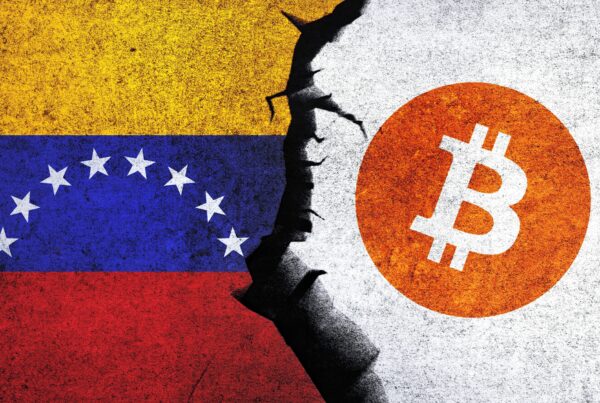Bitcoin, Ether, and other digital currencies have enjoyed a renaissance lately, thanks to Vladimir Putin’s war on Ukraine.
Ever since sanctioned Russian banks lost access to a global system of financial plumbing lenders use to facilitate cross-border transactions, known as SWIFT, investors speculate the pariah state may switch to distributed ledger technologies, the same that underpin crypto-assets, to conduct their daily business.
As Ethereum founder Vitalik Buterin can attest, Russians are already crypto-savvy with the country ranked 18th worldwide in terms of overall adoption. Moreover the very purpose of decentralized finance is to eliminate gatekeepers like governments from unilaterally exercising control. When changes need to be made to blockchain protocol used to record transactions, the overall community decides collectively.
Both Elizabeth Warren, a member of the Senate Banking Committee, and Ukraine’s deputy prime minister, Mykhailo Fedorov, warned over the past two days about the risk of sanctions being defanged.
“I’m asking all major crypto exchanges to block addresses of Russian users,” he wrote on Twitter, only to be rejected by cryptocurrency exchanges Binance and Kraken.
While oligarchs may be able to quickly stash their wealth in a digital wallet, experts say this is no solution for Russia’s businesses at large. The theory of operating in the face of sanctions by shifting over to crypto runs quickly into limitations when confronted with reality. Size may in fact be a disadvantage in this regard as large multinationals generating billions in revenue would not be able to efficiently make the switch.
It is one thing for an individual to convert their savings from rubles into Bitcoin; attempting to run an entire economy on it day in and day out is a different matter entirely. “There simply isn’t enough global [crypto] liquidity to support Russia’s needs,” wrote Asheesh Birla, general manager for RippleNet at Ripple, a blockchain-based digital payment network.
SWIFT’s network, after all, connects more than 11,000 institutions and 4 billion accounts over 200 countries worldwide with the goal of instant, frictionless transactions. Every day it processes on average 42 million financial messages that facilitate transfers of money, with traffic increasing 11% last year. That kind of scale and efficiency cannot be replicated, even with today’s decentralized financial technology.
Birla estimates Russia conducts nearly $50 billion in foreign exchange transactions every day, roughly equal to the entire value of all Bitcoin transactions worldwide even when volumes hit peak levels: “Russia’s needs would encompass BTC and more!”
Since these all leave data fingerprints, they would not necessarily be well suited for escaping sanctions regimes, either. One of the main reasons why a major Bitcoin heist in 2016 resulted in two recent headline-making arrests was the suspects’ inability to easily launder the stolen money and conceal its origin.
Problems arise in time
Caroline Malcolm, head of international policy at distributed ledger research firm Chainalysis, told CoinDesk her company can flag suspicious payments, alerting either governments or industry customers immediately so they can take countermeasures.
“We’ve seen that in the past with sanctions, you’ve got examples where wallet addresses have been named as sanctioned entities,” said Malcolm.
That isn’t to say the U.S. government takes the issue lightly. Treasury officials in October argued the underlying approach to sanctions needed to be adapted to the emergence of new actors like cybercriminals and the overall increase in financial market complexity.
“Technological innovations such as digital currencies, alternative payment platforms, and new ways of hiding cross-border transactions all potentially reduce the efficacy of American sanctions.” it wrote in an annual review.
“These technologies offer malign actors opportunities to hold and transfer funds outside the traditional dollar-based financial system.”
Another issue is the high transaction costs, known as “gas fees” on the Ethereum blockchain. The infrastructure is not yet capable of handling the kind of business an entire country would need, likely leading to a spike in costs as demand for processing outstrips computational power.
Daniel Webber, chief executive of FXC Intelligence, a financial data company specializing in international payments, argues new blockchains such as Solana are being developed to handle higher volumes, scale efficiently, and reduce transaction costs. But it will take time before Russia’s financial system and its industry is, both from a cost and technology perspective, willing and able to switch to crypto.
“The longer SWIFT sanctions last and the more banks they involve, the more demand will be created to solve some of the current limitations for crypto and blockchains,” Webber wrote to Fortune.
So while some small businesses and the self-employed may have needs negligible enough in size to continue operating, there is scant evidence this would be possible on the scale Russia needs anytime soon. Although that may one day change.
CURATED FROM:
Hetzner, Christian. Despite fears, crypto is no viable alternative to SWIFT for sanctioned Russian banks. 01 Mar, 2022, https://fortune.com/2022/03/01/crypto-swift-russia-ukraine-war-moving-money-sanctions/.






